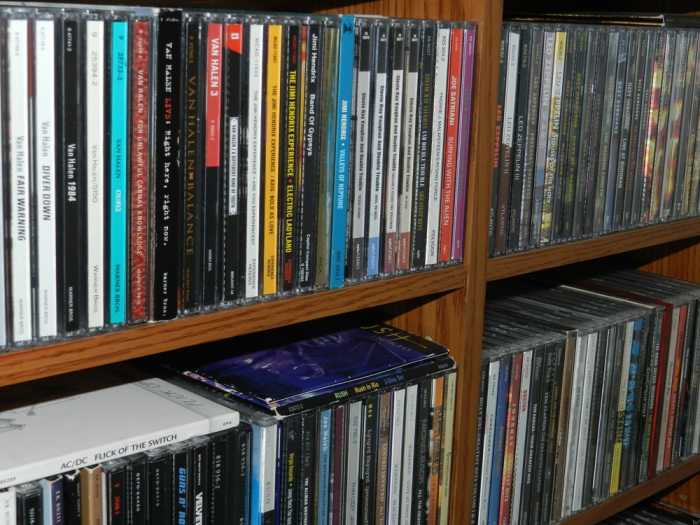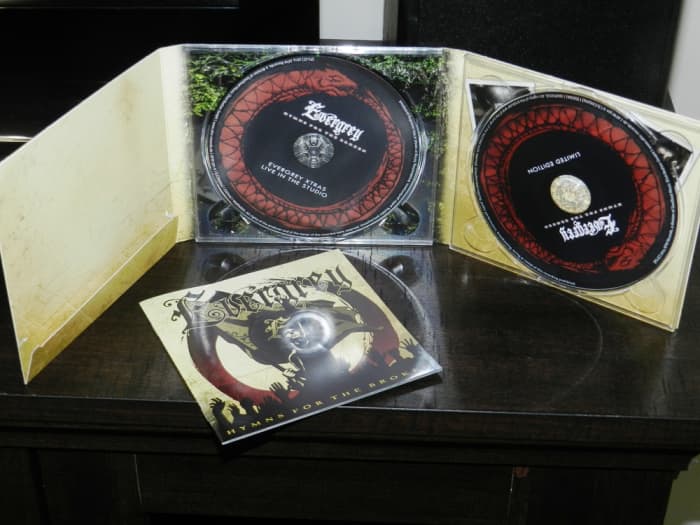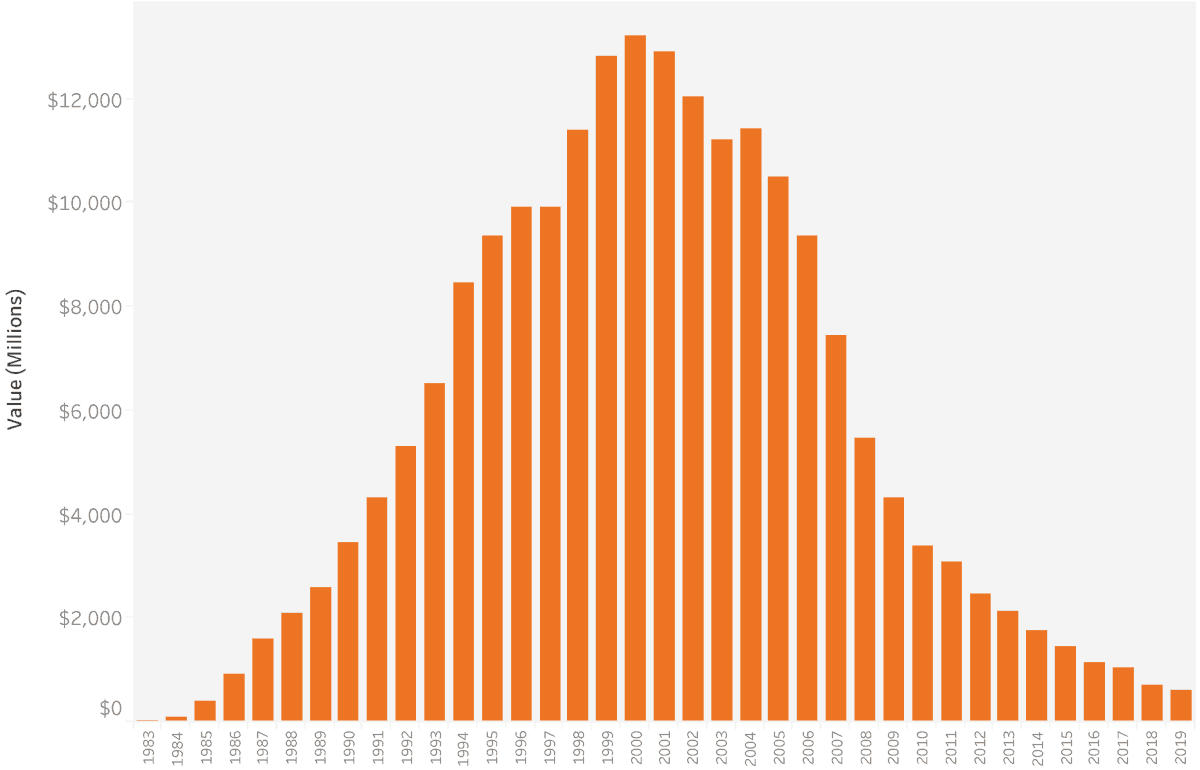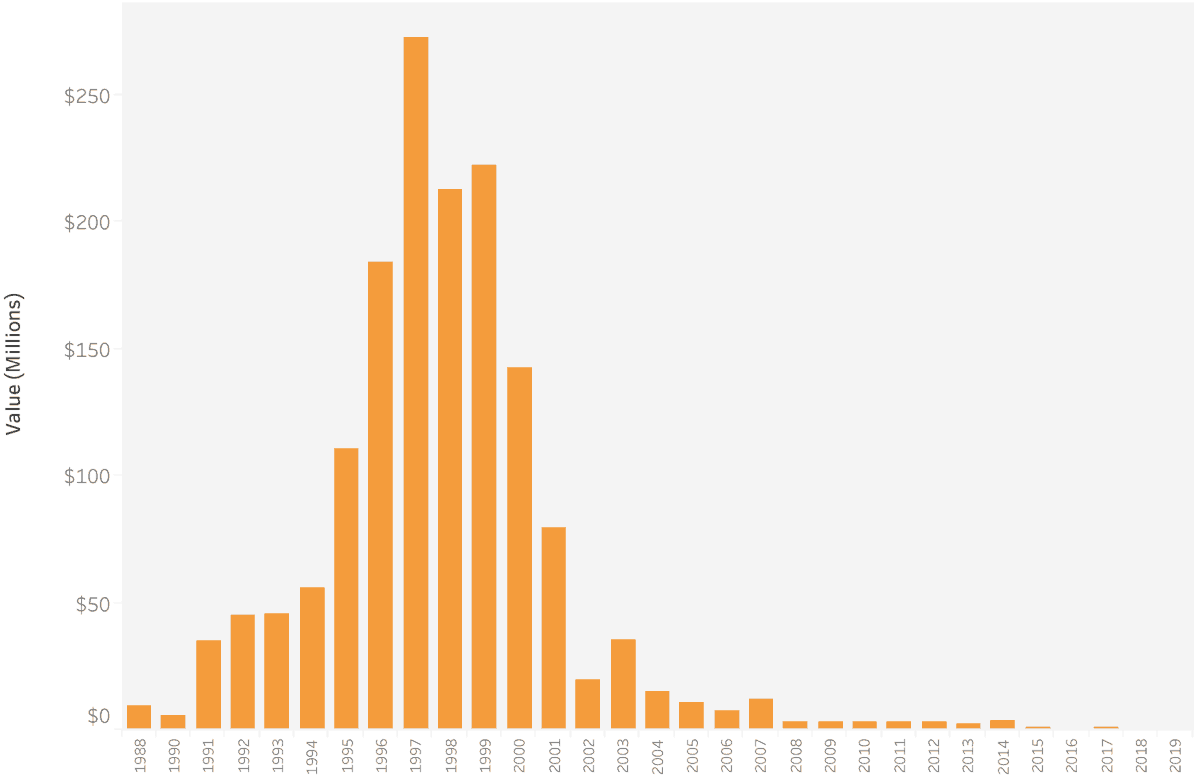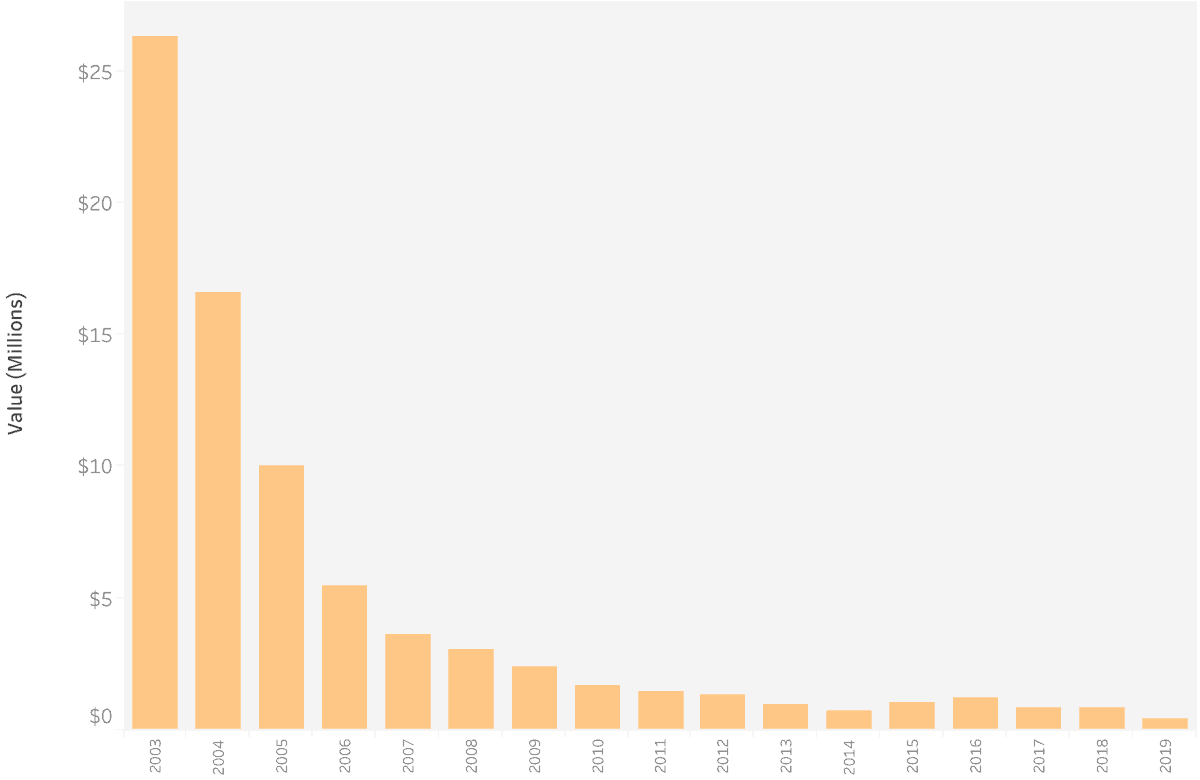Goodbye CDs
I recently bought a new Jeep, and I absolutely love it. It looks awesome, and it has knobby tires and four-wheel drive that comes in very handy where I live. It has countless gadgets, mostly controlled by a touch screen on the dash. It has a computer that monitors everything from oil life to tire pressure, and it has a GPS system to tell me where I am and where I am supposed to be going. It has heated seats, and it has a cool backup camera to prevent me from accidentally running stuff over.
But do you know what it doesn’t have? A compact disc player. It has USB ports and an SD card reader, and it has Bluetooth and an aux-in jack, but not a CD player. While this doesn’t make me love my Jeep any less, and I know it has become the standard on most vehicles, it is a bit frustrating. I don’t know exactly how many CDs I own. Certainly, there are many hundreds, if not over a thousand. They are all now useless in my new vehicle.
Apparently CDs just aren’t cool anymore. This move by car companies is a reflection of a trend in society in general. People don't buy CDs the way they used to, and why should they when there are other, more convenient ways to buy and store music?
But for me, the decline of the compact disc isn’t just annoying. I think it’s an indicator of a much greater problem that won’t be fully realized for a decade or more. And, when it eventually comes down, it will hit music lovers hard.
In this article, I’ll try to explain why I’m not just frustrated by the move away from compact discs, but downright frightened.
Technology Marches On
Before I had a big CD collection, I had a big cassette tape collection. Again, I had hundreds of them. Maybe twenty-five years ago I started trading them in and replacing them with CDs. Before cassettes, people collected vinyl records. I only had a couple of those, but I do remember when most home stereo systems came with a record player. I also remember the 8-track boom when I was a kid, which was but a flash in the pan.
Technology changes and advances, and generally that’s a good thing. As tough as it is to find a compact disc player in a new car these days, it’s a whole lot tougher to find one that has a cassette player. It’s unrealistic to expect CD technology, or any technology, to exist forever.
Today, digital music is the thing. You don’t need to own a physical version of the music. You can download the MP3, store it and play it when you feel like it. You don’t even need to buy the whole album if you’d rather buy just one song, and you can carry many hundreds of songs with you on one small storage device.
In a lot of ways that’s pretty cool. Consumers have more choices and can move more quickly when they want to make a purchase. Bands are able to get their music out there to more people. But in other ways, I think, this model will eventually damage music as we know it.
The problem isn’t that compact discs are going away. It is that they aren’t being replaced by another physical, durable medium. Digital music, stored in the cloud or even on your own personal hard drive or storage device, has an inherently short shelf life. When technology changes again, when you change computers or when you delete a user account, you may make an effort to retain some of the music you like, but much of it will be gone forever. There are no physical copies to stand as a record that it ever existed at all.
If music isn’t important to you, you probably don’t care about this. If you are like the typical consumer you buy music on a whim and have no particular allegiance to any band, artist or genre. Music is just something in the background to distract you when you aren’t thinking about Dancing with the Stars.
But if music means something to you, or if you think art and culture with substance and value should matter, this is really bad news. To me, an album by a band I love is something I want to hold in my hands and cherish. If my hundreds of CDs were stored on my computer instead of sitting on my shelf it wouldn’t be the same.
Music matters, and it should be preserved for the future.
Why Physical Music Matters
If you were a Beatles fan back in the ‘60s you probably bought the Sgt. Pepper’s Lonely Hearts Club Band record when it first came out in 1967. I’d bet a lot of Beatles fans still own those same original albums they spent their pennies on way back then. It still exists in physical form, even if it is stored in a box somewhere. And, if you go out and find a turntable, you can still listen to it.
If you are a bit younger and you were a Beatles fan back in 1980 you probably bought Sgt. Pepper on cassette. If you are younger still, in 1990 you likely bought the album on CD.
Heck, there are probably a lot of people who own Sgt. Pepper on vinyl, cassette, and CD, having upgraded each time technology changed. Many copies of each of those still exist, somewhere. They are physical things you can touch and hold.
But the next generation who buys Sgt. Pepper will do so in a digital format. Where will that digital copy be in ten, twenty or thirty years? Chances are it will not exist, and least, not your version that you downloaded.
The Beatles are one thing, but what about a new band who releases their first album today? If most of their music is sold in digital format, where will those albums be in the future? It simply isn’t possible to hold on to a collection of music in digital format for years and decades the way you could with vinyl, cassette, and CDs. If you hope to do so, you are depending on a range of unlikely variables.
So what if I lose my Sgt. Pepper album when my computer explodes or technology changes, you might be thinking. Surely there will be versions of an old album in new formats just like there were in cassette and CD. You can just buy it again.
You’re right. Beatles albums will probably be offered in the most modern formats until the end of time, but that’s not true for all bands. It’s nice to think that record companies would continue to offer a band’s music in new formats for anyone who wants it, but if the money isn’t there surely they won’t bother. There will be songs, albums and entire bands that end up completely lost to time.
That happened with other formats too. But the difference was if a band released a vinyl record album back in 1965 and it was never released on cassette tape or CD, at least copies of the vinyl record are potentially still around. Even though some rare or old albums are no longer printed in any format, if you put your mind to it you could buy an old one on eBay or from a collector if you are lucky.
That won’t be true of digital music. Record companies will decide what music lives and dies based on popularity, which is what they’ve always done. But, without physical copies, the fans of future generations will miss out on a lot of great music that didn’t make the cut. It will simply be gone.
This will hit fans of more obscure genres like metal, jazz and classical especially hard. If you are a casual pop music fan, again, you probably won’t care. However, I like to think maybe you'd care simply because the loss of so much great music will make the world a worse place.
Your Music in 20 Years
If you buy an album in digital form today, do you expect to still own it in twenty years? If so, you are banking on some pretty unlikely events. You need to hope that in twenty years there is still some program or service that plays whatever format your music is stored in. You’re going to have to hope whatever technology you are storing it on remains viable, intact and free of viruses, and that you remember to back everything up correctly and transfer it over each time you change computers or devices.
If you are storing your music online or in the cloud, you need to depend on those services being around in twenty years, and you need to hope they don’t have some kind of problem or disappear overnight. You are going to have to hope that, if something bad does happen, there is still some version of your music out there for you to replace your lost copy.
To be clear, digital music technology is a good thing. It’s good for new bands, it’s good for established bands and it’s good for the consumer. It makes things easier for everybody, and if you are an unsigned band there has never been a time in history when it is more possible to get your music out to more people.
But it lacks a sturdy vessel, and that’s a big problem. We can’t rely on hard drives and the ubiquitous “cloud storage” to protect our music and culture for years or decades to come. Unless this changes, in twenty years there will be a lot of music you remember from years past that you simply will not have access to anymore. It may exist somewhere, in the digital vault of some record company, but as far as the public is concerned it is gone.
Personally, I like the idea that I can remember a band from my high school or college days and still easily find their music. And, for me and I know many others, it’s also about more than just the audio portion of an album. I love the album art, leafing through the liner notes and song lyrics and all the other great stuff that came with a CD or album. With digital music, all of it is gone and that’s really sad.
Physical albums have value beyond the audio. Bands like Evergrey give us a product we can cherish for life.
What Can We Do?
I was wandering around a thrift store the other day, checking out their shelves of second-hand CDs. Somebody had once thought it was a good idea to purchase each of those albums but has since decided they didn’t want them anymore. So, they sold them to the thrift shop, where another person can pick them up for a dirt-cheap price. The music lives on, for another generation.
If they were digital albums, the original owner would have simply deleted them when they were sick of them. What a crime. Is there any way to change this way of thinking, and would we even want to?
In my 30+ years as a musician, I have come to the unfortunate conclusion that trying to create any logical change in mainstream culture is like trying to stop a hurricane with a desk fan. The vast majority of people simply don’t care about what will happen in twenty years. As consumers, they want what is cheapest and easiest, and in some ways that’s understandable. They will continue to download songs for a few bucks a pop and the music industry will continue to give them what they want. Expecting people to wake up and figure out the damage this could do is unrealistic.
So, if you do happen to care about music, what can you do? For me, the answer is to continue to buy CDs until another form of physical album comes along. I might not be able to play them in my car, but at least I’ll still own them in 20 years. Like vinyl records today, there will likely still be a way to play them.
If you do choose to buy only digital music, you need to come up with a safe way to store it, controlled completely by you. I’d have a system of dedicated flash drives, and probably backups of those. If the only copy of the music is on your phone, you are asking for trouble.
As for my Jeep, I will probably convert some of my CDs into a digital format so I can listen to them while driving. I’ll have to download them onto my computer and move them over to flash drives or SD cards I guess.
All that seems like a big hassle and something you shouldn’t have to do just to listen to music in your car. There should be an easier way. Like, maybe some kind of disc you could just slide into a player on the dashboard.
Yeah. Somebody ought to work on that idea.
Do You Still Buy Compact Discs?
Comments
KCrusty on July 31, 2020:
I have a lot of CD's as well ...maybe only a few hundred or less. But like you mentioned, Once you move to another format, how many times are you going to pay for the licence to listen to what you already own if you copied all your cd's to a PC hardrive And you move to a new PC your media player will require a licences in order to play it. if you don't have a hard copy then your out of luck. But most people won't care about preserving their old collection
Jon Meltzer on February 10, 2020:
As long as I can keep getting CDs for $1 each at library sales because all the hipsters are dumping them for vinyl, I'm going to keep buying them.
Hell, I remember when vinyl was "worthless". Good thing I saved most of mine then so I can resell it now :-)
Source: https://spinditty.com/industry/How-the-Decline-of-the-Compact-Disc-is-Killing-Music
